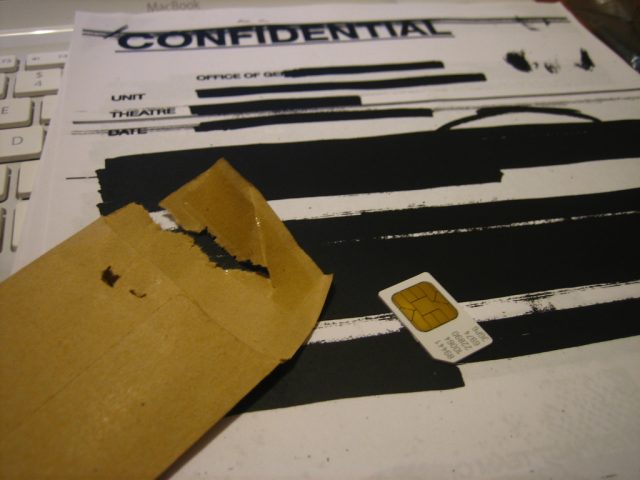
OAKLAND, California—Lawsuits challenging government secrecy have fared pretty terribly in the post-9/11 era, with the most recent example being the Supreme Court's ruling last month that a group of journalists and activists have no right to sue over the FISA spying law.
Only a few cases of this sort are left, including two Bay Area lawsuits being pushed forward by the Electronic Frontier Foundation. One is the San Francisco case over NSA wiretapping, which the government is trying to shut down using the "state secrets" privilege. The other is EFF's case demanding to see documents about how the government is interpreting Section 215 of the PATRIOT Act.
It isn't just activists that are concerned, either. In 2009, Sen. Dick Durbin (D-IL) said the government's use of "Section 215 is unfortunately cloaked in secrecy. Some day that cloak will be lifted, and future generations will ask whether our actions today meet the test of a democratic society." In 2011, two US Senators, Ron Wyden (D-OR) and Mark Udall (D-CO), publicly voiced their concerns, too, suggesting the government had a pretty wild interpretation of what it was allowed to do under the PATRIOT Act. "When the American people find out how their government has secretly interpreted the Patriot Act, they will be stunned and they will be angry,” Wyden told The New York Times.
It isn't known what kind of investigation those records would reveal, but there is some speculation that the Section 215 records are related to cell phone geolocation data. EFF's lawyer in charge of the case says if that is true, such data is probably being gathered on a "massive" scale.
Later that year, EFF filed a lawsuit [Complaint, PDF] insisting that some of those documents should be publicly disclosed. The government had stonewalled EFF's Freedom of Information Act request, so now the group wanted a federal judge to enforce its request.
Department of Justice lawyers said the FOIA couldn't be complied with, because it would reveal classified information about a "sensitive collection program."
The “list itself is classified”
In January, the government filed a declaration [PDF] signed by Mark Bradley, the FOIA director of DOJ's National Security Division, explaining what records would be responsive to EFF's request. The descriptions of the documents are extremely basic. For instance, Bradley explains that there are 200 relevant documents dated from May 2006 to Sept. 2011 that were provided to a key House intelligence committee, and that they total 799 pages. It goes on in that fashion.
At today's hearing in Oakland federal court, US District Judge Yvonne Gonzalez Rogers suggested that the document wasn't going to be sufficient.
"Why can't I have a basic categorization of what the documents are?" asked Gonzalez Rogers.
"That list itself is classified," responded Steven Bressler, the DOJ attorney present for the hearing.
"Are you suggesting the number of pages of each document is classified?" asked the judge. "What's been provided is: '200 documents consisting of 799 pages.' That doesn't tell me anything. It doesn't tell the public anything. It was never explained to me how something as basic as a list with page numbers could, in any way, shape, or form, be contrary to the interests of the government."
"Mr. Bradley has sworn, under penalty of perjury, that to say more would tend to reveal classified information," said Bressler. "A wealth of information is available for in camera review." Information like page numbers and timing of documents "may be put together by targets of investigation, or adversaries of the United States," he said.
"What the defendant [DOJ] is doing isn't a national security concern," said Mark Rumold, the EFF lawyer arguing to release the documents. "It's a litigation tactic, used since the beginning of FOIA, to make it impossible for FOIA to challenge the government. The defendant can't even describe why they can't describe the records in more detail."
It's an extremely incremental step, but Gonzalez Rogers seemed to side with EFF today. She said she was inclined to issue an order that would ask for more detail about the documents.
"What I have here is, 'We sent them 200 documents.' That's not good enough," she said.
reader comments
79